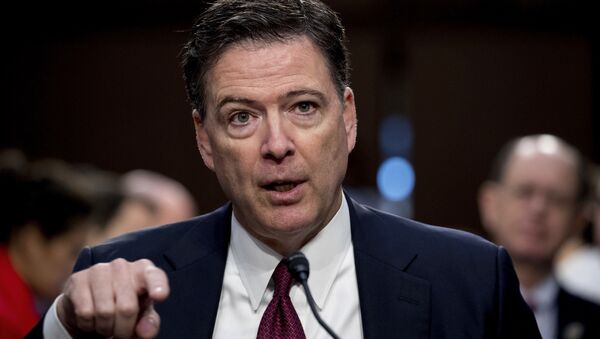Comey was ordered by the House Judiciary Committee on November 21 to visit Congress and provide closed-door testimony about several matters, including Comey's role in the so-called Russian collusion investigation as well as the probe into Hillary Clinton's handling of classified emails while US secretary of state.
In the petition, Comey says that he won't agree to the order, though countless other witnesses have been required to do the same.
"Comey asks this Court's intervention not to avoid giving testimony but to prevent the Joint Committee from using the pretext of a closed interview to peddle a distorted, partisan political narrative," the petition says. Comey's filing says he's asking for the judge's intervention in order to prevent the further spread of what he called a partisan "corrosive narrative" about his handling of the Clinton email case.
— James Comey (@Comey) November 29, 2018
Instead, Comey said he favors a public hearing to discuss these issues. Comey has previously been provided a chance to discuss the Russia investigation and Clinton email case before Congress on several occasions. During these appearances, Comey maintained the Clinton probe was not politically tainted. Concerning his personal involvement in the Russia probe, Comey was known to say that he couldn't talk about ongoing investigations.
In the filing, Comey's lawyers said the committees were "leaking what suits them" and supporting the assertion that the FBI gave Clinton "unwarranted leniency" under his watch.
Comey was fired from the FBI for talking about an ongoing investigation. He held a press conference to declare Clinton's innocence, a move that was unprecedented, in violation of FBI policy, and ultimately grounds for his dismissal, according to Deputy Attorney General Rod Rosenstein and FBI Inspector General Michael Horowitz. He was also blamed by Clinton for her 2016 presidential election loss because of his letter to Congress that her case had been reopened only days before the vote.

